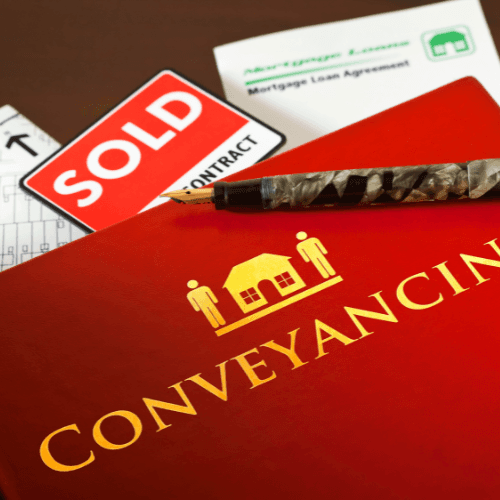Vendors
The MJ Legal team is committed to providing clients with the most reliable and accurate digital conveyancing experience. We will consult you to understand your unique expectations and guide you through the process to efficiently achieve your desired outcome.

Start Your Property Sale with MJ Legal Today!
Start Your Property Sale with MJ Legal Today!
Selling your property doesn’t have to be stressful. Contact MJ Legal to ensure a smooth, efficient, and successful sale. Our dedicated team is here to support you every step of the way.
Contract Preparation and Review

Section 32 Statement
- Accurate Compilation: We prepare the Section 32 statement (Vendor’s Statement), ensuring all required information about the property is accurately compiled and presented.
- Compliance Assurance: Our experts make sure the Section 32 statement complies with all legal requirements, providing peace of mind to both you and the buyer.

Settlement Process
- Coordination and Management: We handle all aspects of the settlement process, coordinating with the buyer’s legal team, your lender, and other stakeholders to ensure a smooth transaction.
- Timely Completion: Our team ensures that all legal and financial obligations are met on time, facilitating a seamless transfer of ownership.
Selling Your Property with Us
If you are selling your property with us, we will guide you through the following steps:
Initial Consultation and Property Assessment
Contract Preparation and Section 32 Statement
Step 2:
Contract Preparation and Section 32 Statement
We meticulously prepare the contract of sale and the Section 32 statement (Vendor’s Statement). Our experts ensure all necessary information and disclosures are included, and that the documents comply with legal requirements, minimizing the risk of future disputes.
Marketing and Negotiation Support
Step 3:
Marketing and Negotiation Support
We offer strategic advice on marketing your property and provide support during negotiations. Our team will represent your interests, aiming to achieve the best possible terms and price for your property.
Settlement Coordination
Step 4:
Settlement Coordination
Our conveyancing team manages the entire settlement process, coordinating with all parties involved to ensure a smooth and timely completion. We handle all legal and financial obligations, facilitating a seamless transfer of ownership.
Calculating the Cost of Selling Your Home
Calculating the Cost of Selling Your Home
Accurate Financial Planning for Home Sellers
When buying and selling a home simultaneously, understanding your finances is crucial. Here's a detailed guide to help you navigate the costs involved in selling your home:
1. Preparation Costs:
- Home Staging: Enhance the appeal of your home with professional staging services.
- Repairs and Improvements: Address necessary repairs or improvements to increase your home's market value.
- Professional Photography: Invest in high-quality photos to attract potential buyers.
2. Marketing Expenses:
- Listing Fees: Costs associated with listing your home on various platforms.
- Advertising: Promote your property through online ads, brochures, and other marketing materials.
- Open House Events: Organize open house events to showcase your home to potential buyers.
3. Selling Agent Commission:
- Agent's Fee: The commission charged by your real estate agent for their services. This is typically a percentage of the final sale price.
4. Additional Selling Costs:
- Auctioneer Fees: If you choose to auction your home, account for the auctioneer's charges.
- Removalists: Budget for professional movers to transport your belongings to your new home.
5. Post-Sale Adjustments:
- Rate Adjustments: Allow for adjustments to property rates or taxes.
- Mortgage Payout: Ensure your mortgage is fully paid out from the settlement funds.
- Legal Fees: Cover the cost of legal services required to finalize the sale.
Talk to Your Bank Early
Talk to Your Bank Early
If you're selling your home and have a loan, it must be paid out at settlement. Contact your bank for an indicative payout figure as there may be exit costs you're unaware of. Some mortgages are cross-collateralized or used as security for other loans. Restructuring your finances is a common reason vendors miss settlement, especially when other properties need to be revalued by the bank.
Even if you've paid off your loan, a mortgage may still be registered on the title. Remember, having no loan doesn't mean you don't have a mortgage—they're different things.
First Home Buyers
How to Negotiate an Agency Agreement
How to Negotiate an Agency Agreement
When selling your home with a real estate agent, you’ll sign an agency agreement. Here’s a quick guide to the types:
- Exclusive: One agent exclusively sells your property.
- Auction: Exclusive agreement for auctioned properties.
- Sole: One agent, but you can also find a buyer yourself.
- General/Open: Work with multiple agents/agencies.
- Multiple Listing: One agent plus their network within an agency.
Key Components:
- Type and duration of the agreement
- Agreed selling price and method of sale
- Settlement period
- Fees and commission (typically 1.3% to 4%)
Tips:
- Research options to understand pros and cons.
- Negotiate terms to reflect your best interests.
- Clarify all fees and commissions.

How can we help
How can we help
Equipped with years of experience, our property lawyers at MJ Legal are experts at conveyancing.
Our service to you is provided using a high degree of technology that is seamlessly integrated with the human touch.
We believe in educating our clients about the legal process and taking the selling of your property journey with you. We will advise you on all the steps that need to be taken so that no extra burden is placed on you as you embark on this milestone in your life.
Our lawyers will work with your mortgage broker or bank to assist you in managing your finance approval process, reducing the time you spend navigating between the two professionals to have your property settled.

FAQ's for Vendors
Find answers to commonly asked questions
Loading accordion content...
